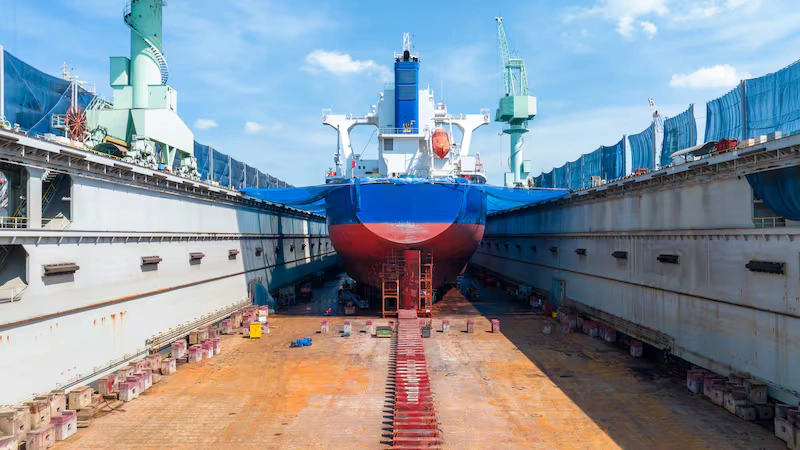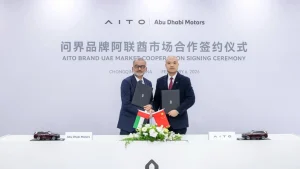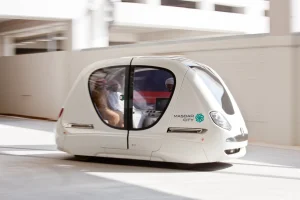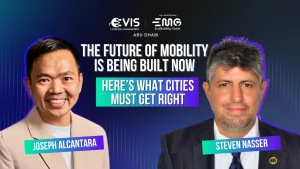According to National News —The UAE continues to lead global efforts in maritime sustainability, with industry leaders emphasising innovation, decarbonisation, and environmental stewardship as core priorities for the future of shipping.
The shipping industry’s transition toward sustainability took centre stage at the first World Maritime Day Parallel Event held in Dubai, where regional and international leaders gathered to accelerate progress toward net-zero emissions by 2050.
Captain Saif Al Mheiri, Chief Executive of Abu Dhabi Maritime and Chief Sustainability Officer at Abu Dhabi Ports, highlighted how the UAE is positioning itself as a front-runner in maritime decarbonisation. “It is our obligation to be sustainable through a number of factors,” Capt Al Mheiri said at the event staged as a follow-up to World Maritime Day, which took place last week.
“To decarbonise, we are starting from our efficiency of operations, from electrification of our operations and equipment, and ships. We can do this by using renewable energies and alternative fuels, as well as ensuring proper waste management and biodiversity conservation,” he added.
From electrified tugboats to AI-powered route optimisation, Abu Dhabi is demonstrating how innovation and sustainability can work hand in hand. The world’s most powerful electric tugboat, operated by Abu Dhabi Ports, achieved a record 78.2-tonne peak pull in 2024—setting a new global benchmark for clean maritime power. Complementing these advances are eco-engineering solutions such as sea walls designed to encourage marine life and 48 ‘biohuts’ coated in seashells, submerged to help restore fish populations near ports.
Emerging technologies are also reshaping efficiency. “We have recently deployed low Earth orbiting satellites into our operations to give us more precise measurements of our locations for vessels,” said Capt Al Mheiri. “It allows us to deploy AI tools for voyage and route optimisation. A mix of AI and nature-based solutions, with everything connected in a very holistic manner, will be the best for the future.”
The event also reinforced the UAE’s commitment to global maritime standards. The International Maritime Organisation (IMO) aims to reduce greenhouse gas emissions by at least 20% by 2030 and 70% by 2040 compared to 2008 levels, with a legally binding regulatory framework expected by 2027. The UAE’s own Maritime Decarbonisation Centre, launched in 2023, supports these ambitions by promoting innovation, technology adoption, and sustainable policy development.
In a video speech opening the two-day conference, H.E. Suhail Al Mazrouei, Minister of Energy and Infrastructure, said a global effort was required to protect the oceans while maintaining shipping routes critical for the world economy.
“This year’s theme, our ocean, our obligation, our opportunity, invites us to reflect deeply on the role we each play in safeguarding maritime ecosystems, ensuring resilience, maritime economics, and utilise innovations for the sustainable future,” he said.
“It is a theme that resonates strongly with the UAE’s own maritime vision. This is an opportunity to unite our efforts towards achieving that balance of economic growth with protecting the oceans, which connect us together and keep them healthy for the next generations.”
Globally, shipping accounts for around 3% of greenhouse gas emissions, with over 80% of traded goods transported by sea. Yet the industry is evolving rapidly—from cutting plastic pollution to reducing underwater noise and curbing the spread of invasive species.
Arsenio Dominguez, IMO Secretary General, said the sector has made great strides in cutting pollution but more work remains to be done. “In regards to pollution, we have reduced the oil spills by over 90 per cent in comparison to the 1990s,” he said. “And for nearly 30 years, we have been controlling plastic pollution emanating from ships, but still around 20 per cent of pollution from all the ocean comes from maritime-related industry, either the ship, fishing, or shore infrastructure.
“This is why the IMO also has a plastic strategy to reduce such pollution and in particular focusing on the single use of plastic.”
Mr Dominguez added that shipping was responsible for more than 70 per cent of invasive species in the ocean and that underwater radiated noise could be cut by 40 per cent if vessels were made more efficient.
As the global conversation around decarbonisation deepens, EVIS Abu Dhabi 2026 and Eco Mobility Global 2026 will provide an essential platform to continue this conversation – connecting maritime innovators, policymakers, and technology leaders driving the shift toward cleaner, smarter, and more efficient mobility systems. Join us from October 13–14, 2026 at ADNEC Centre, Abu Dhabi, where the future of sustainable mobility meets real-world solutions.
Source: https://www.thenationalnews.com/news/uae/2025/10/01/abu-dhabi-ports-chief-lays-out-net-zero-path-for-shipping-industry/








